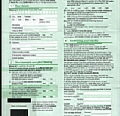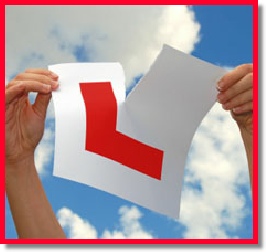 Every vehicle driver or any transportation vehicle driver has many obligations in having a car. They need to have necessary papers like registration paper and a driver’s license to use their car freely on the road and in other places. This necessary paper is also needed if you want to rent a car in other places. Every government agency, mostly transportation agency, reinforces different laws regarding having a license. Like the new policy implemented this year in United Kingdom (UK), the Paperless driving license that has been implemented by Driver and Vehicle Licensing Agency (DVLA).
Every vehicle driver or any transportation vehicle driver has many obligations in having a car. They need to have necessary papers like registration paper and a driver’s license to use their car freely on the road and in other places. This necessary paper is also needed if you want to rent a car in other places. Every government agency, mostly transportation agency, reinforces different laws regarding having a license. Like the new policy implemented this year in United Kingdom (UK), the Paperless driving license that has been implemented by Driver and Vehicle Licensing Agency (DVLA).
The agency transforms the paper-driving license to a credit card size photo-card license. According to the agency, this newest driving license is more about online activities. They can be able to share their license details with third parties via a new digital service called “View driving License”. In this service motorists are allowed to see how many penalty points they have and what vehicle they can drive. It will also serve as a guide to those people who want to check the record of an employee or customer. The government said that they just want the motorist to have an easy access to the government services. This photo card license can be renewed by the motorist after three years. In over-all, the DVLA Strategic plan is to have an easy policy access through technology.
But does this new policy could be easy to the motorist? Is the implementation of this helpful to them? Many motorists were alarmed by this policy of DVLA regarding the new driving license that they must have this year and the paperless driving license will be no longer accommodated once the said policy is fully implemented. Many have said that it will just cause them so much time, effort and money in applying for a photo version-driving license. Many has been confused in this implemented policy mostly to those foreign car hire firms that it may affect those individuals who are just renting a car during their visit mostly in UK. Because they need first to have necessary papers regarding this policy before they have a car they can be used. This policy may just cause them additional expenses because of the implementation of this new driving license.
But how about to those old motorists having the old version of driving license, even the government is saying and assuring that the change of their old form license will be free but are they still capable on updating their record online. They will be having a hard time in viewing and updating their records unless the government will have a special assistance that will attend to those old drivers or motorists in making those updates online.
On the other side yes, there are good effects that this new policy may have in terms of modernizing the driver’s policy through technology. But the thing is, before they implement this policy make sure that the entire individual that will be affected by this law is warned and guided enough by the government. And make sure that before implementing this new policy it should be decided by the majority.
How to view
A free View Driving Licence service lets you see what details are on your licence, including what vehicles you can drive and any penalty points you may have. It can be accessed here.
For more information on how this impacts those starting to learn to drive, contact us at James School of Motoring.
 Even if you are the best driver in the country, it is difficult when you have to take the actual take a driving test. You are nervous, scared, and things thing you know just disappear from your memory. To pass your test, it is a good idea to know what expected of you. Some tips and tricks for passing your UK driving tests are:
Even if you are the best driver in the country, it is difficult when you have to take the actual take a driving test. You are nervous, scared, and things thing you know just disappear from your memory. To pass your test, it is a good idea to know what expected of you. Some tips and tricks for passing your UK driving tests are:






